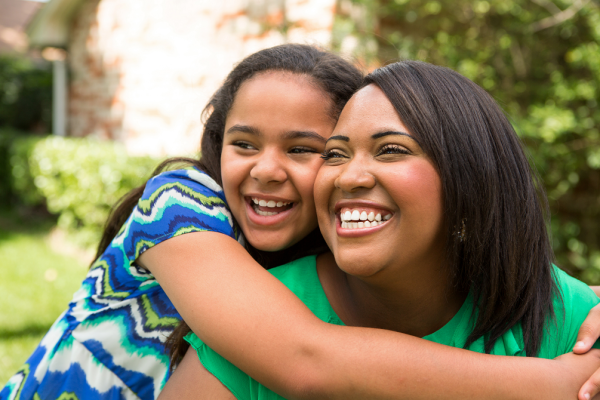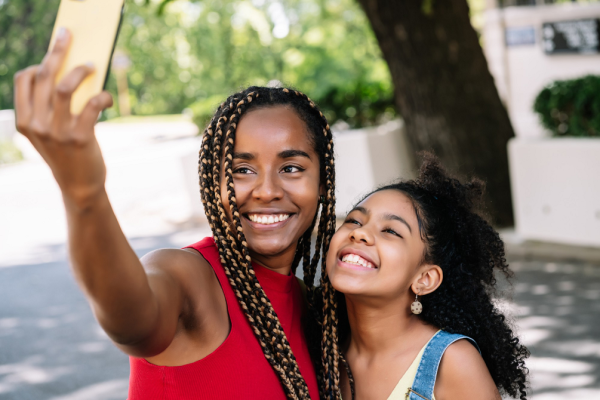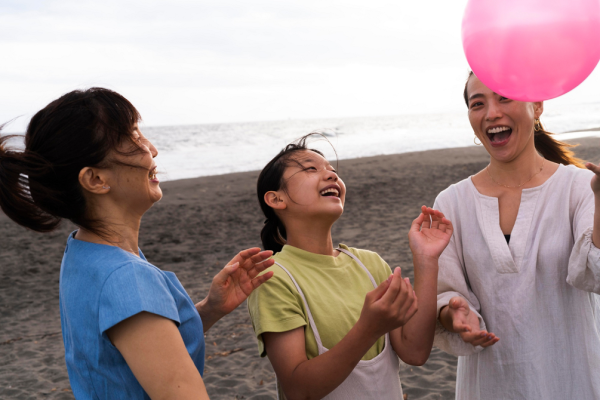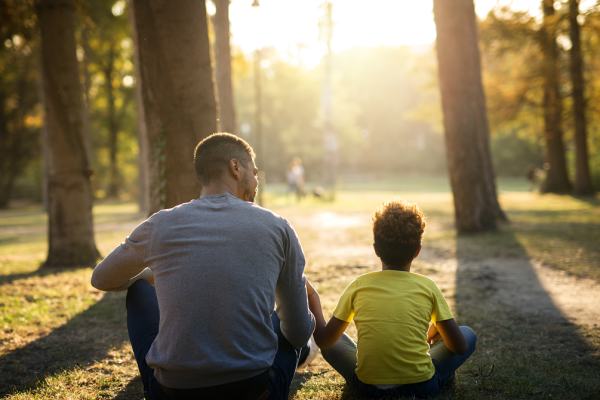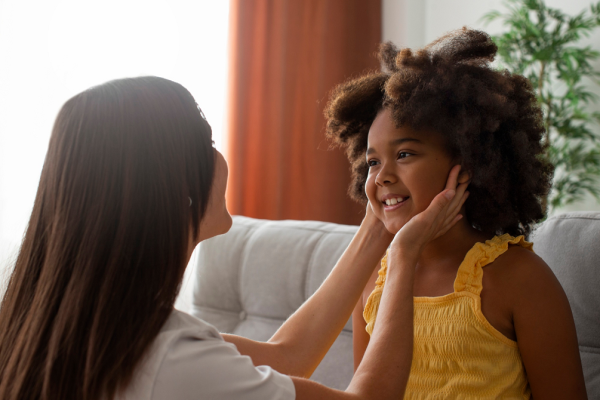August 15, 2023
Every Body Is a Summer Body: How Caregivers Can Encourage Self-Esteem and Body Acceptance in Young People
Check out a few ways to promote body acceptance, inclusivity, and confidence all summer long – and beyond!
Summer can be a great opportunity to connect with ourselves and our loved ones. Whether you’re looking forward to relaxing pool time or an exciting trip, there are plenty of reasons to enjoy the season.
This time of year can also conjure up complicated feelings, especially for young people. Harmful messages about body standards negatively impact youth mental health. And a recent advisory from the United States Surgeon General says social media can exacerbate the issue, with 46% of adolescents aged 13-17 reporting that it contributes to negative feelings about body image.
Adults and caregivers play a significant role in how young people perceive themselves and the world around them. Conversations that encourage confidence and acceptance can go a long way in combating unrealistic societal standards so that young people can live fuller, more healthy lives.
Here are a few ways to promote body acceptance, inclusivity, and confidence all summer long – and beyond!
Respect Boundaries
Young people are learning what makes them feel safe, respected, and confident. Encourage them to set and communicate healthy boundaries – and listen to them when they do. Boundaries can relate to several areas of our lives and relationships.
For example, respect young people’s consent (or not) to be photographed. Summer parties, reunions, and vacations are all great opportunities to capture memories, but taking and sharing images may make youth feel uncomfortable.
Try this:
- Before taking a photo, ask, “Are you OK with taking a picture right now?”
- Before sharing a photo with loved ones or on social media, ask, “Are you OK with me sharing this photo with others or on social media?
Listen to the Body’s Natural Cues
Much of the country will experience extreme heat during the summer months, which can lead to numerous health concerns. It’s crucial to heed the signs of heat-related illness, dehydration, and fatigue. Adults can model self-awareness by taking breaks to check in and make sure everyone feels well during outdoor activities.
It’s also important to encourage youth to honor their connection to food. Eating disorders are on the rise among adolescents, and pressures related to body image can lead to harmful eating patterns. Kaiser Permanente shares tips for parents and caregivers to help young people maintain a positive relationship with food, including body acceptance and supportive environments.
Try this:
- Take breaks from your activities to ask, “What is your body telling you?” or ask more specific questions about physical cues, like fatigue, thirst, hunger/fullness, and emotional cues, like stress, tension, and enjoyment.
Support Appearance Choices
The C.S. Mott Children’s Hospital National Poll on Children’s Health found that 64% of parents believe their child is “self-conscious about some aspect of their appearance.” As young people grow and adapt to their surroundings, it’s important to support them in how they choose to express themselves through appearance choices or fashion.
Remember, self-expression can change over time too. One summer your child might prefer one color or style, then dress differently the next year as they grow and learn. Regardless, continue to support them as a person as you stay curious and ask genuine questions.
Try this:
- Instead of criticizing style choices, ask what young people like about their choice of clothing, hair, makeup, etc.
- Listen to their answers with an open mind.
- Be supportive of their reasons, even if they don’t completely make sense to you.
Affirm LGBTQ+ Youth
The Trevor Project, a leading organization providing support for LGBTQ youth, recently found that “fewer than 40% of LGBTQ young people believe their home is LGBTQ-affirming.” The survey also highlights ways to support LGBTQ youth, including ensuring access to healthcare and establishing affirming spaces. Encouraging and supporting gender expression, including hairstyle, dress, and appearance choices, can also have a positive impact on the mental health of young people.
Try this:
- Ask, “What do you need from me to feel supported?”
- Check your local community groups to find out if they have LGBTQ+ clubs or mentorship programs to help support your child and the whole family.
Explore additional resources to help cultivate supportive environments at home and at school, such as:
- The Trevor Project: Guide to Being an Ally to Transgender and Nonbinary Young People
- Human Rights Campaign: Caring for LGBTQ Children & Youth
- Johns Hopkins Medicine: Tips for Parents of LGBTQ Youth
- StopBullying.gov: Resources to Support LGBTQI+ Youth
Ask Young People about Words that Improve Self-Esteem
When young people (and adults) have strong self-esteem, they are more likely to feel accepted, be proud of themselves and their accomplishments, and believe in themselves, according to Nemours KidsHealth. One of the ways youth can build their own self-esteem is by practicing positive self-talk – encouraging and describing themselves like they would describe a friend.
Adults can model positive self-talk and reinforce self-esteem by asking young people to share phrases that make them feel good about themselves. Be open to their responses. Every young person is unique. For example, it might be tempting to affirm a young person’s appearance with comments like, “But you’re beautiful just the way you are!” when affirmations about their interests, personality traits, and accomplishments would be more effective. Alternatively, compliments can make some people feel uncomfortable – consider that a boundary and respect it.
Try this:
- Help young people practice positive self-talk by asking, “What’s something you like about yourself today?”
- If they’re open to affirmations from others, ask “Which words and encouragements help you feel good about yourself?”
Thank you for your commitment to helping young people feel accepted and included at home and in your community. Your support will help them thrive all year round!
Additional Resources
- Use the Mapping Your Identity resource to help young people express themselves and their identities.
- Read the Tools & Affirmations for Outspoken Allies blog post.
- Check out this list of books for teens and young adults from Penguin Random House that encourage self-love and body positivity.
-By Nicole Blanton, Manager of Culturally Responsive Communications at Healthier Generation


